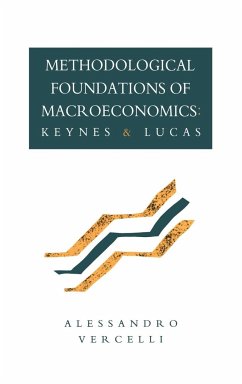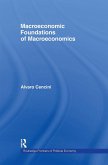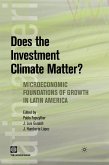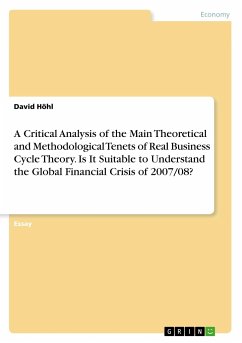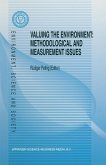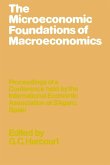This book is an investigation of the methodological and epistemological foundations of macroeconomic theory, based on an examination of the theories of Keynes and Lucas. It is divided into two parts. In the first Professor Vercelli discusses the methodological issues which lie behind the conflict among different schools of thought in macroeconomics (equilibrium and disequilibrium, risk and uncertainty, rationality and causality). These issues are central to the current debate not only in many branches of economics, but also in other scientific disciplines. The traditional point of view of science based on equilibrium, stability and determinism has been increasingly challenged by a new point of view in which disequilibrium, instability and uncertainty play a crucial role. This, the author argues, is bound to put macroeconomics in a new, more promising position. In the second part of the book the author compares the two main alternative research programmes in macroeconomics: that outlined by Keynes in his 'General Theory', and that suggested by Lucas, the leader of the new classical economists. He maintains that a thorough understanding of the methodological underpinnings of these main conflicting views helps to give a deeper knowledge of the crucial macroeconomic issues and to clarify the future prospects of macroeconomic research. Professor Vercelli concludes that the Keynesian conception of macroeconomics as a discipline autonomous from microeconomics and open to theoretical and methodological innovation should be defended, excluding any fundamentalism either of the Keynesian or new classical varieties.
Table of contents:
Preface; 1. Introduction; Part I. Methodological Foundations Of Macroeconomics: 2. Equilibrium, disequilibrium and economic theory; 3. Dynamic instability and economic models; 4. Structural instability and economic change; 5. Uncertainty, predictability and flexibility; 6. Rationality and expectations; 7. Probabilistic causality and economic analysis: Suppes, Keynes, Granger; Part II. Keynes After Lucas: 8. Lucas's scientific paradigm; 9. Lucas's heuristic model; 10. The real equilibrium business cycle and Lucas's attempt at a synthesis; 11. Keynes's heuristic model: general observations; 12. Money and production in Schumpeter and Keynes: Two dichotomies; 13. Keynes's heuristic model: methodological aspects; 14. Conclusions; References; Index.
An investigation of the methodological and epistemological foundations of macroeconomic theory. The author compares the two main alternative research programmes in macroeconomics: that outlined by Keynes in his 'General Theory', and that suggested by Lucas, the leader of the new classical economists. He concludes that a Keynesian conception of macroeconomics as a discipline autonomous from microeconomics and open to theoretical and methodological innovation should be defended.
An investigation of the methodological and epistemological foundations of macroeconomic theory.
Table of contents:
Preface; 1. Introduction; Part I. Methodological Foundations Of Macroeconomics: 2. Equilibrium, disequilibrium and economic theory; 3. Dynamic instability and economic models; 4. Structural instability and economic change; 5. Uncertainty, predictability and flexibility; 6. Rationality and expectations; 7. Probabilistic causality and economic analysis: Suppes, Keynes, Granger; Part II. Keynes After Lucas: 8. Lucas's scientific paradigm; 9. Lucas's heuristic model; 10. The real equilibrium business cycle and Lucas's attempt at a synthesis; 11. Keynes's heuristic model: general observations; 12. Money and production in Schumpeter and Keynes: Two dichotomies; 13. Keynes's heuristic model: methodological aspects; 14. Conclusions; References; Index.
An investigation of the methodological and epistemological foundations of macroeconomic theory. The author compares the two main alternative research programmes in macroeconomics: that outlined by Keynes in his 'General Theory', and that suggested by Lucas, the leader of the new classical economists. He concludes that a Keynesian conception of macroeconomics as a discipline autonomous from microeconomics and open to theoretical and methodological innovation should be defended.
An investigation of the methodological and epistemological foundations of macroeconomic theory.

